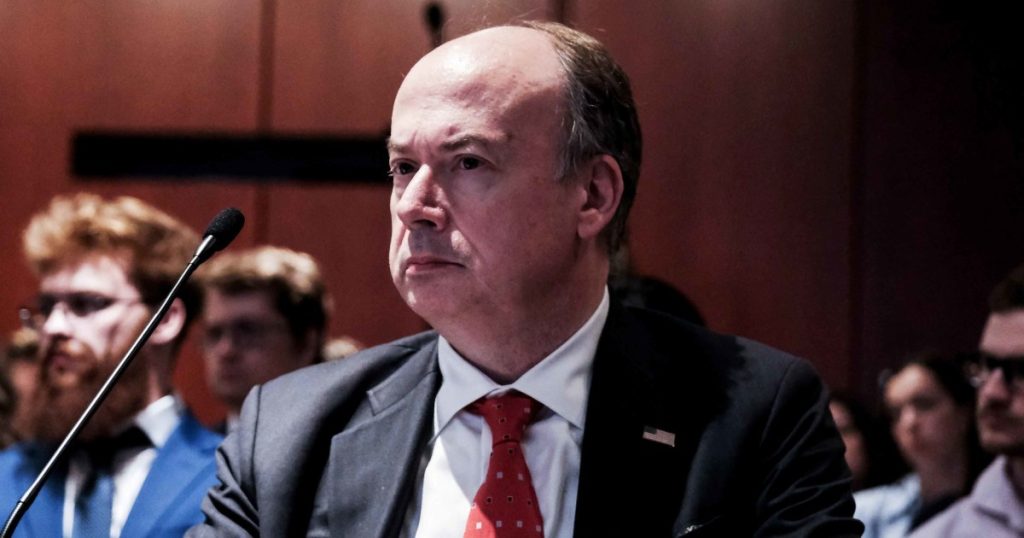The disciplinary panel of the D.C. Bar has made a preliminary conclusion that former Trump Justice Department official Jeffrey Clark committed an ethical violation by pushing conspiracy theories about the 2020 presidential election, including the allegation that the election was stolen via smart thermostats. Clark, who lacks experience in criminal law, was considered by former President Trump for the role of acting attorney general just days before the Jan. 6 attack on the U.S. Capitol. However, Trump backed down after being warned of mass resignations within his own Justice Department if he proceeded with the appointment. Clark now faces potential disbarment and has repeatedly asserted his Fifth Amendment rights during testimony before the panel.
The disciplinary panel had to determine whether Clark pushed election conspiracy theories in bad faith to help Trump secure a second term, or if he genuinely believed the falsehoods he was promoting. The disciplinary counsel argued during closing arguments that Clark had no rational basis to believe the conspiracy theories, as they had been repeatedly disproven. Witnesses who testified in Clark’s defense included known election deniers who attempted to lend credibility to the baseless theories of election fraud. One expert witness disagreed with Clark’s assertion that his “client” was Trump rather than the American people, arguing that as a government attorney, the client is the Department of Justice and the American people.
Clark’s lawyer maintained during closing arguments that his client was advocating sincerely held opinions and was not acting dishonestly by promoting election conspiracy theories. Former Deputy White House Counsel Pat Philbin testified that he had tried to dissuade Clark from taking actions to help Trump maintain power, warning him of the potential damage to his career. Clark’s lawyer argued that a draft letter written by Clark outlining concerns about the election results was merely a proposal for internal discussion and was never sent or made public. Punishing Clark for the proposal would set a dangerous precedent of punishing lawyers for their thoughts.
The board’s preliminary finding is seen as a step towards holding Clark accountable for conduct that undermined democracy and the rule of law. Other attorneys, such as Rudy Giuliani, John Eastman, and Jenna Ellis, have faced consequences for their actions related to the 2020 election, and Clark may be next in line. The decision signals that no one, regardless of their position, is above the law. The case has drawn attention from lawyers across the country who are watching to see how the situation unfolds and how it may impact lawyers who find themselves at odds with prevailing opinions in future administrations. The final ruling on Clark’s bar status will be made by the D.C. Circuit Court of Appeals after considering the full board’s findings.


